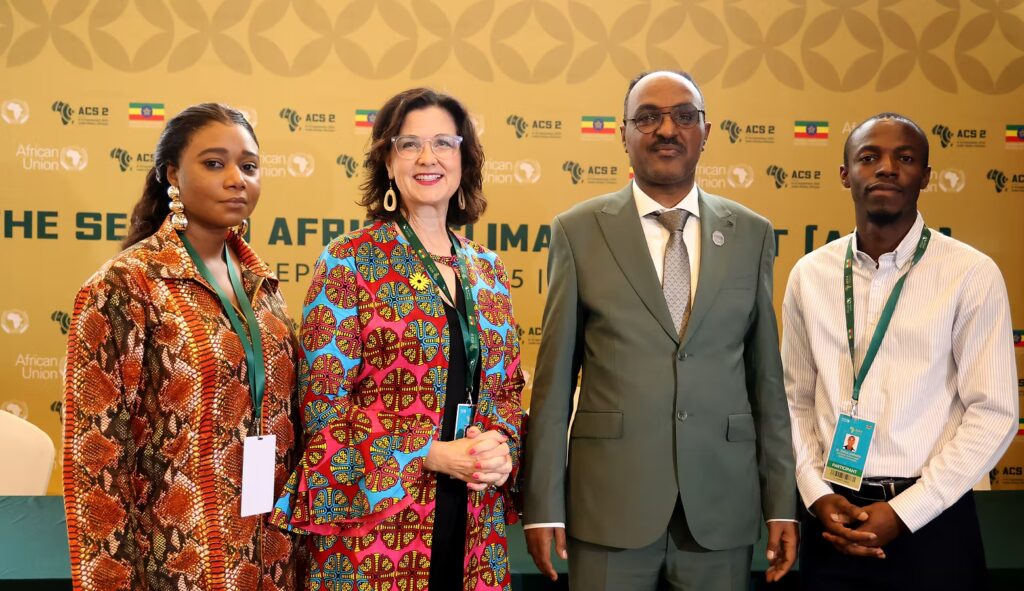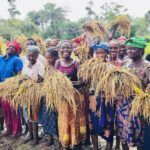Four African cities have been awarded new grants to strengthen resilience against extreme urban heat, as the continent faces rising temperatures and mounting risks from climate change.
Accra in Ghana, Paynesville and Monrovia in Liberia, and Kassa in the Republic of Guinea were named recipients of Climate Resilience for All’s (CRA) African Urban Heat Resilience Grant Program. Each city will receive $40,000 to support heat mapping, community awareness, and planning for long-term adaptation.
The grants were announced in Addis Ababa during the Africa Climate Summit 2.0 flagship initiative, alongside Ethiopia’s minister of planning and development for environment, climate change and demography, Seyoum Mekonnen Hailu.
According to the Intergovernmental Panel on Climate Change (IPCC), the number of people in African cities exposed to heatwaves of at least 15 consecutive days above 42°C has already grown from 27 million in 2010 and could reach 360 million by 2100, if warming is limited to 1.8°C. Under higher warming scenarios, exposure could rise to 440 million people.
A focus on communities
CRA says the funds will be used for scientific data collection and community-driven heat awareness campaigns, designed to help vulnerable groups, especially women, cope with dangerous heat.
Kathy McLeod, CRA’s CEO, said the initiative marked a “new era of African extreme heat leadership,” adding that women’s voices and solutions would be central to the work.
Freetown Mayor Yvonne Aki-Sawyerr, whose city hosted the first African Urban Heat Summit in February 2025, praised the awardees.
“This is proof that Africa is not waiting; we are leading and building a cooler, healthier future,” she said.

Cities respond
Monrovia’s Mayor John-Charuk Saifa said the grant would strengthen the capacity to identify heat hotspots and integrate resilience into city planning.
Paynesville’s Mayor Robert Bestman pledged to advance a “sustainable future” through heat mapping and awareness efforts.
In Accra, Mayor Michael Kpakpo Allotey said the grant would help protect communities while tackling urban heat “head-on.”
Ethiopia’s Seyoum Mekonnen Hailu urged African leaders to turn visions into action. “Let us ensure our cities not only survive but thrive in a changing climate,” he said.
Freetown to host African Urban Heat Summit in 2026
CRA also confirmed that Freetown will host the second African Urban Heat Summit in April 2026. The event will expand beyond West Africa to include more cities across the continent, with a focus on women and vulnerable communities most affected by heat.
“The urgent need for heat action in Africa’s cities is skyrocketing,” said McLeod. “The 2026 summit will energise more action and financing to protect lives and livelihoods.”
Shade for women traders
In addition, CRA announced co-designed shade projects in three of Freetown’s busiest informal markets: Bombay Street, Congo, and Dove Cot. The projects will provide solar-powered lighting, clean cold storage, and fans to cool trading spaces.
Women traders in these markets, who already report losing up to 60% of their income because of extreme heat, are expected to benefit directly from the infrastructure.
Mayor Aki-Sawyerr said scaling such initiatives would require urgent adaptation finance. “
The time is now to invest in solutions that will protect lives, livelihoods, and the future of African cities,” she said.
CRA says the market projects, developed with local women and engineers, are designed to be sustainable, scalable, and community-owned.









